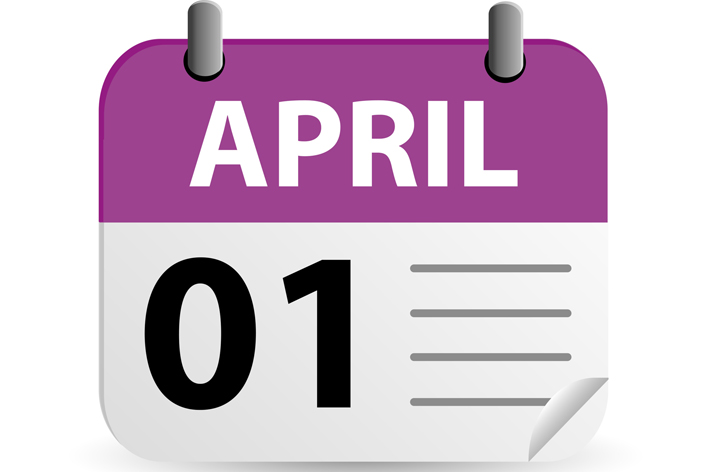April Fools in the tech world
Our roundup of the best April Fools' Day hoaxes from the tech world - did any of these catch you out?


Every year, the internet becomes even less trustworthy than usual on 1 April, as normally serious sites and tech firms try to fool their users with silly hoaxes.
Some are just shocking, others a bit cruel, and most a bit stupid, but now and then a genuinely funny one is thought up. Google, BMW and even Microsoft have all come up with solid April Fools' hoaxes who wouldn't want Google Romance, instant messaging on car windscreens and pi pranks?
This year, we decided to not play a prank, but to celebrate those created by others. Here's our top 10 list of April Fools' Day tech pranks did you get caught out by any?
Microsoft buys Dell
Big acquisitions are a common tech hoax. This year, our sister site PC Pro ran an early April Fools' joke in their magazine, suggesting Microsoft was set to buy Dell and release branded hardware.
Because of the nature of publishing cycles, it was written months ago, but somehow found its way online well before April. Because the prank was so early and Dell had previously announced job cuts some didn't find the joke quite so funny.
Other variations on the acquisition joke include Google buying Facebook and Microsoft successfully buying Yahoo. Who knew mergers and acquisitions could be so hilarious?
Get the ITPro daily newsletter
Sign up today and you will receive a free copy of our Future Focus 2025 report - the leading guidance on AI, cybersecurity and other IT challenges as per 700+ senior executives
Slashdot's OMG!!! Ponies!!!

The site claimed: "Our marketing department has done extensive research over the last 3 quarters and discovered that our audience is strangely disproportionately skewed towards males. Like, 98.3 per cent males to be precise. To correct this oversight, we have decided to subtly tweak Slashdot's design and content to widen our appeal to these less active demographics."
Headlines that day included "how hot would a light sabre really be" and "cutest ever web site discovered!!!" Sheer genius. And it was really cute. Click here for a photo of pink Slashdot.
Google's Virgle, Romance, Gmail Paper and more

In 2002, it launched MentalPlex, which read users' minds to determine what they really wanted from their search results, as well as PigeonRank, the bird-based explanation behind its mysterious PageRank system.
In 2004, there was Google Gulp the web giant's own soft drink followed by a dating site two years later, with the fantastic tag line: "Dating is a search problem. Solve it with Google Romance." Maybe Google really can find everything.
The web giant's pranksters had a bumper year in 2007. First there was Gmail Paper, letting less savvy web users create a paper archive of their email. MP3 and WAV files could not be printed, sadly. Then, there was the beta of TiSP, a home wireless system that makes use of plumbing, a so called "dark porcelain" project which really isn't all that far-fetched these days, but funny all the same.
From the press release: "I couldn't be more excited about, and am only slightly grossed out by, this remarkable new product," said Marissa Mayer, Google's vice president of search products and user experience. "I firmly believe TiSP will be a breakthrough product, particularly for those users who, like Larry himself, do much of their best thinking in the bathroom."
Last year, Google kind of over-did it. Among others, there was a new Gblogs service that organised posts by relevancy rather than date, Adsense for conversations, and the Austrailans got Gday a brand new service to search pages 24 hours before their creation. Google Books even got scratch and sniff tech, a nice play on the BBC's own effort.
Gmail users could edit time stamps on email using Custom Time, so we could lie about when we sent a message. But don't worry, it used an "e-flux capacitor to resolve issues of causality." Brilliant.
Freelance journalist Nicole Kobie first started writing for ITPro in 2007, with bylines in New Scientist, Wired, PC Pro and many more.
Nicole the author of a book about the history of technology, The Long History of the Future.
-
 Bigger salaries, more burnout: Is the CISO role in crisis?
Bigger salaries, more burnout: Is the CISO role in crisis?In-depth CISOs are more stressed than ever before – but why is this and what can be done?
By Kate O'Flaherty Published
-
 Cheap cyber crime kits can be bought on the dark web for less than $25
Cheap cyber crime kits can be bought on the dark web for less than $25News Research from NordVPN shows phishing kits are now widely available on the dark web and via messaging apps like Telegram, and are often selling for less than $25.
By Emma Woollacott Published